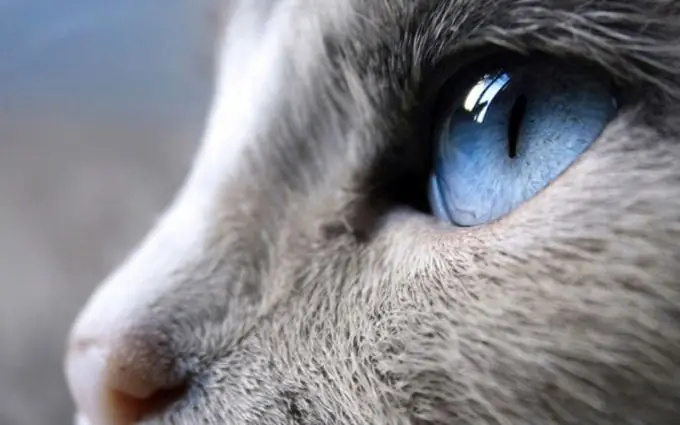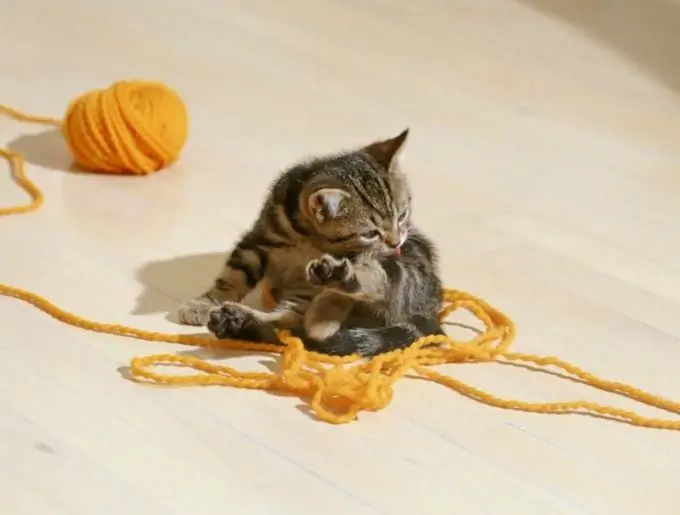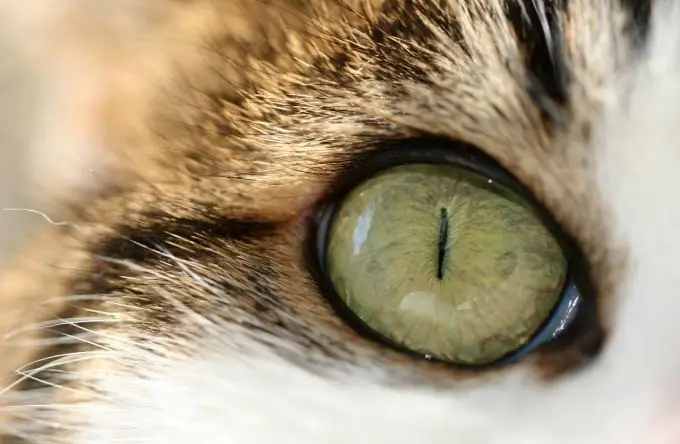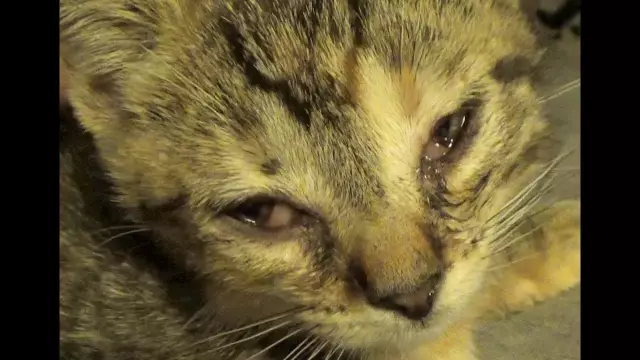- Author Delia Mathews [email protected].
- Public 2024-01-08 22:57.
- Last modified 2025-01-22 15:45.
Watery eyes in a cat is perhaps the most common problem with which owners turn to veterinarians. Watery or festering eyes in animals can be a symptom of many diseases, including those that require immediate and serious treatment.

It is necessary
Strong tea leaves, cotton swab, special eye drops (for example, Sofradex or Lacrimine)
Instructions
Step 1
Wash your hands thoroughly with soap and water and carefully examine the cat's eyes. Look for any purulent discharge, redness, swelling, or scratches in the eyes. Pus in the corners of the eyes can be a sign of a serious infection, so it is best to show the cat to the veterinarian right away. If there is swelling and redness around the eyes, and the cat often sneezes and rubs its eyes, then it may have a cold or allergies. Allergies are most commonly caused by household chemicals or pollen. The cause of increased lacrimation can also be the ingress of a foreign object into the eye or injury. In addition, in long-haired cats, such as Persians, hair is often caught in the eyes.

Step 2
If there are no signs of injury, and the cat's eyes are not festering, then try rinsing them with strong tea leaves. To do this, brew fresh tea, let it cool and strain. Dip a cotton swab in the tea leaves and gently clean the corners of the eyes. You can drip your eyes with special pharmaceutical preparations, such as Sofradex or Lacrimine. In doing so, be sure to strictly follow the instructions. And keep in mind that these drugs will not be able to cope with serious infections.

Step 3
If you notice the slightest signs of a viral infection, take your pet to a doctor immediately. The most common cat eye diseases are conjunctivitis and creatitis. Both can lead to rapid loss of vision. In this case, it is by no means possible to treat yourself in this case. The same is the case with eye trauma and allergies.

Step 4
Perhaps the increased lacrimation in a cat is congenital. This happens in some breeds, for example, in the Don Sphynxes. This is called eyelid volvulus. With it, the eye is anatomically shaped so that the eyelashes begin to constantly scratch the cornea. In this case, only surgery can help - an operation during which the eyelid is unfolded and pulled.






